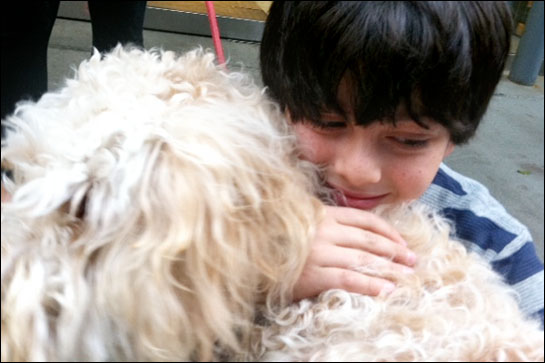
This is a guest post from Kate Fridkis, whose family did homeschooling when she was growing up. She blogs about body image at Eat the Damn Cake and she blogs about homeschooling at Skipping School.
When you’re homeschooled and interested in something, you don’t go to your mom and say, “Mom, teach me more about this.” You try to figure out how you can gain more exposure to that thing. You might ask your parent/s for advice on where to start. And then you go out into the world and learn some more.
If you want to be a poet, you contact the most famous living poet in your area, and you ask if you can hang out with him/her. You join poetry workshops and groups and you sign up to compete in poetry slams. You send your poetry out to magazines and competitions. You start a poetry club. By the way, by this time, you are learning a lot more than poetry. You are learning how to organize people, compete in a public arena, and manage what is beginning to resemble a small business.
When you learn naturally, on your own, it’s hard to cut the world up into subjects. If no one tells you that this particular thing is called science, and in science you learn biology, beginning with the parts of the cell, and then you learn about genes, and eventually you get to chemistry, then you might find yourself doing science by accident, for fun. Just because you want to.
Which no one ever believes, because people think that kids are lazy.
“If I left my kids alone,” they always say, “They’d just play video games all day.”
They would definitely do that some days. Because video games are fun. But if they were homeschooled, they wouldn’t have learned that work and play are two totally different things that you’re supposed to do at different times. And the part where you’re supposed to be learning is over on the work end of the spectrum, while the video games are all the way on the other side, under a big sign that reads “play.” Work is an activity that you can be bad at. You might fail at any moment. You know it’s work because it’s required, and because your progress is always being measured. Play is when you can relax and be yourself.
It’s sometimes hard for people who went to school to imagine living in a world where work and play are the exact same thing. But guess what? That’s this world. And for kids who grow up out of school, learning is the same as being alive.
You don’t exactly need a teacher for that.










